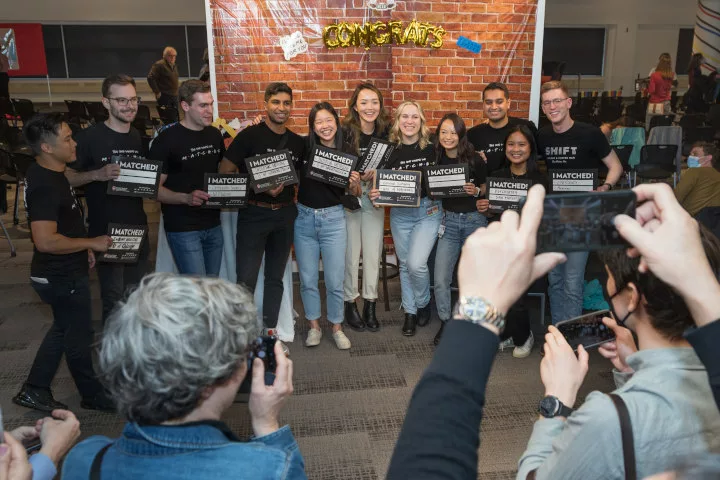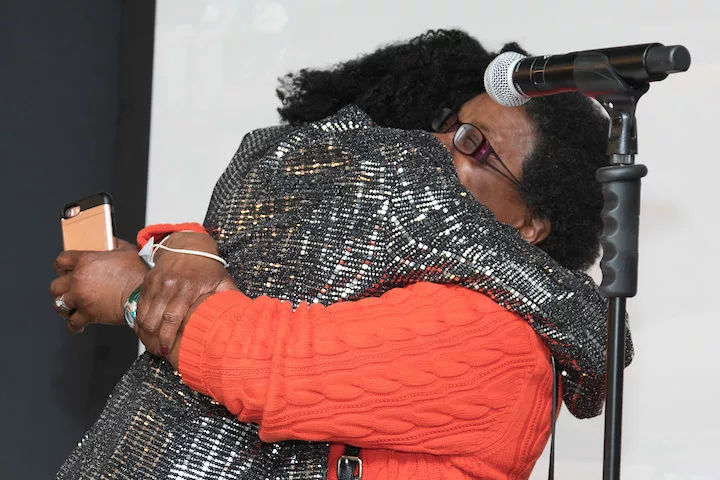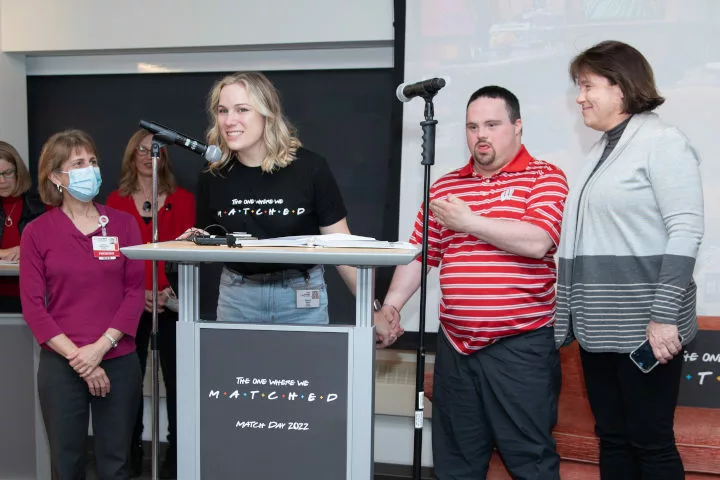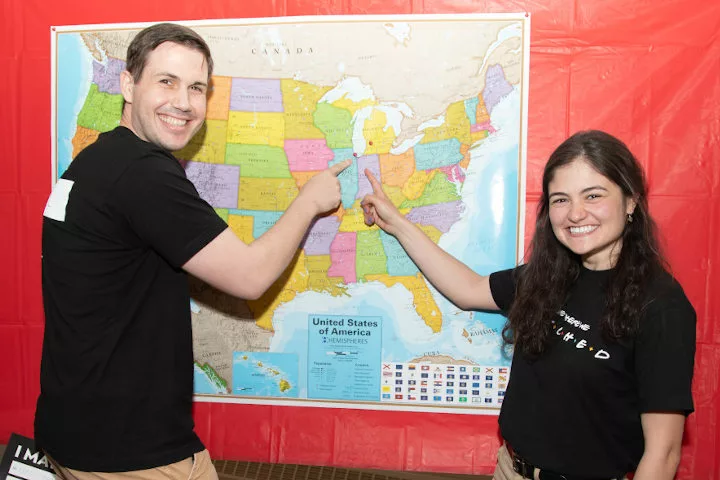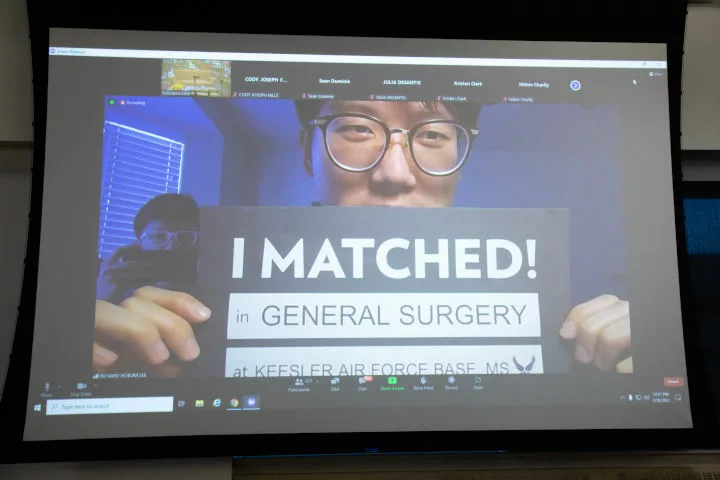“It was really great to see everything come together for the event,” Maginot says. “There was personal excitement about my own match but then excitement for my classmates, who are my friends, to experience an incredible Match Day with a fun theme. There were so many emotions.”
Trevor Cooper continues path to becoming a rural physician
Trevor Cooper, an Ixonia, Wisconsin native and first-generation college student, will travel to Asheville, North Carolina to train in obstetrics and gynecology. His residency training will take place at the Mountain Area Health Education Center, part of a health system focused on rural health and underserved populations in North Carolina. Cooper hopes to work with rural communities throughout his career.
“I have always enjoyed the rural environment and caring for the people there and I have a passion for women’s health and reproductive justice,” he says. “Being a part of the school’s Wisconsin Academy for Rural Medicine (WARM) really showed me the impact of these disparities and inspired me to pursue these interests.”
Oliva Rater’s journey through motherhood shaped interest in child psychiatry
Many students, like Olivia Rater, had other careers before pursuing medical school. But Rater’s previous role as a writer on the hit medical drama “Grey’s Anatomy” is a particularly unique collision of two worlds — storytelling and medicine. During medical school she added a third world: mother of two.
“Being a mom has taught me so much about reprioritizing and has helped me come into my own,” she explains. “So much about medicine is triage, thinking through what I need to do now and what can wait. Motherhood was the best possible preparation you could ask for. It has changed how I interact with patients. And the community I found of other moms in medical school was invaluable.”
Inspired by her father, who is a psychiatrist, Rater is pursuing psychiatry at University of Texas Southwestern Medical School in Dallas, Texas. She wants to continue training in child psychiatry and in medical school has performed outreach and research with the Boys and Girls Club and in child psychiatry and juvenile justice. Rater’s mother is Puerto Rican and she feels a connection to the Latinx community, and has used her Spanish speaking skills at a children’s clinic that serves many Latinx families.
Joe Archer’s heritage inspires passion about caring for Indigenous communities
Joe Archer (Meherrin Nation) was born in North Carolina and grew up in Ohio in a predominately white community. It wasn’t until his undergraduate and medical school years that he became more engaged with Indigenous communities. He credits the UW School of Medicine and Public Health’s Native American Center for Health Professions (NACHP) with much of his success in medical school.
As part of the school’s Training in Urban Medicine and Public Health track, he worked with the Southeast Oneida Tribal Services office on how to create smoke-free policies that respect the traditional significance of tobacco. He also completed a medical school rotation at the Gerald Ignace Indian Health Center in Milwaukee. Archer matched into family medicine at the University of Illinois College of Medicine at Chicago and hopes to continue working with urban Native communities.
